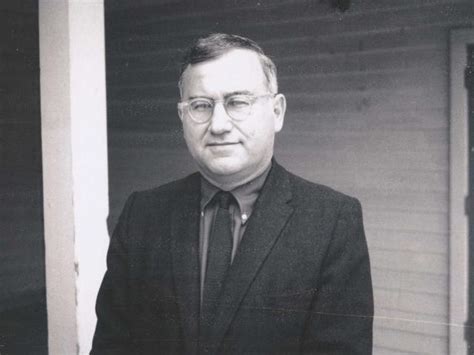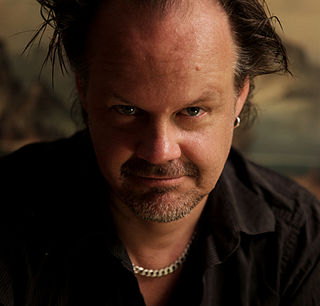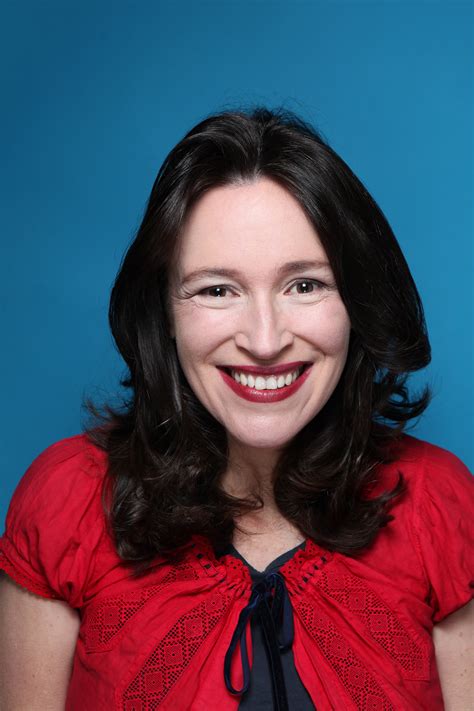Top 627 Obsessive Compulsive Quotes & Sayings - Page 11
Explore popular Obsessive Compulsive quotes.
Last updated on April 16, 2025.
If you would like to write better than everybody else, you have to want to write better than everybody else. You must take an obsessive pride in the smallest details of your craft. And you must be willing to defend what you've written against the various middlemen - editors, agents and publishers - whose sights may be different from yours, whose standards not so high.
I am, I must confess, suspicious of those who denounce others for having too much sex. At what point does a healthy amount become too much? There are, of course, those who suffer because their desire for sex has become compulsive; in their case the drive (loneliness, guilt) is at fault, not the activity as such. When morality is discussed I invariably discover, halfway into the conversation, that what is meant are not the great ethical questions but the rather dreary business of sexual habit, which to my mind is an aesthetic rather than an ethical issue.
How do you remember everything from different books when you are still writing the HP series? As obsessive fans will tell you, I do slip up! Several classrooms move floors mysteriously between books and these are the least serious continuity errors! Most of the fansites will point you in the direction of my mistakes. But the essentials remain consistent from book to book because the story has been plotted for a long time and it is clear in my mind.
Silence and stillness are not states and therefore cannot be produced or created. Silence is the non-state in which all states arise and subside. Silence, stillness and awareness are not states and can never be perceived in their totality as objects. Silence is itself the eternal witness without form or attributes. As you rest more profoundly as the witness, all objects take on their natural functionality, and awareness becomes free of the mind's compulsive contractions and identifications. It returns to its natural non-state of Presence.
Johnson is wise, Boswell foolish; Johnson warns and abstains, Boswell plunges; Johnson is rather a great man writing than a greatwriter, Boswell is a great writer and an ordinary man; and they are two of a kind, abysmal melancholics and compulsive socializers, afraid of solitude and afraid of death and dissolution, victims of themselves, meant for each other, needing each other, needing evidence and arguments (Boswell is a lawyer, Johnson magisterially dictates to him some of his briefs), making beautiful models of rational discourse out of the useful substance of all they know.
People always ask us women about how we balance our lives. Rarely do they ever ask men this but we are asked this and it makes a lot of sense - balance, right? It sounds right. And of course you do have to balance because otherwise you'd go crazy. And you do have to find ways of doing things in a sensible manner, raising children and all those choices. But then there's a part of creativity which is irrational and which is obsessive and then that's also part of what we do. So, I don't think that's a bad thing. I think that's part of what makes someone good.
I always loved horror as a kid. On the one hand, I really love monsters, because in a way I feel like I related to their outsider status and like the sentimental romantic plight of the monster. More importantly though I feel like people are completely motivated by fear, especially with our political system here in America which is just degenerating into more and more fear mongering and it gets in the way of real discourse, plus it's just something I'm obsessive about and have always been a little bit of a paranoid guy.
I was pretty self-conscious about my body because everybody kept going on like, "Oh, she's so curvy!" and "She's a plus-size model!" and this and that. It's all people would talk about - how I'm not very skinny. For a while, it made me pretty upset and I got a bit obsessive about it. I did a bunch of dieting and exercising and everything. I was losing weight, but I was still much bigger than everybody else. I didn't really see the point of making myself crazy anymore, so I kind of toned it down a little bit.
Insomnia is a variant of Tourette's--the waking brain races, sampling the world after the world has turned away, touching it everywhere, refusing to settle, to join the collective nod. The insomniac brain is a sort of conspiracy theorist as well, believing too much in its own paranoiac importance--as though if it were to blink, then doze, the world might be overrun by some encroaching calamity, which its obsessive musings are somehow fending off.
Is it love, obsession, infatuation? You don't know. You think of a strange and beautiful word you read about once, Limerance, a psychological term, meaning an obsessive love, a state that's almost like a drug. Need like a wolf paces the perimeter of your world, back and forth, back and forth, never letting up. ...You're appalled by the new appetites within you, kicking their feet and clawing to get out.
I must say that when I first learned of the existence of the Australian Greenhouse Office, I assumed it was responsible for supplying tomatoes to the Parliament House kitchen. But, no, as I soon learnt as industry minister, it was in fact a government funded redoubt of veritable soldiers in a war against carbon dioxide. The zealotry and obsessive passion of these warriors in the battle against the apparent evils of carbon dioxide remains a curiosity to me. After fighting these people for three years as industry minister, I really did wish they would just go away and grow tomatoes.
Perfectionism is the voice of the oppressor, the enemy of the people. It will keep you cramped and insane your whole life, and it is the main obstacle between you and a shitty first draft. I think perfectionism is based on the obsessive belief that if you run carefully enough, hitting each stepping-stone just right, you won't have to die. The truth is that you will die anyway and that a lot of people who aren't even looking at their feet are going to do a whole lot better than you, and have a lot more fun while they're doing it.
It's a very obsessive profession that you need to stay obsessed to get anywhere, and it's very easy for us to get obsessed and then nothing else matters. I was reading Somerset Maugham's novella, Moon and Sixpense, about this artist based on Gauguin's life. It was so beautifully written. You must be first rate because second rate you might not survive. If you're an accountant, you'll survive second rate. If you chance it big, you may not get anywhere.
I was asked by the National Institute of Health to be their scientific discussant on the effects of these drug [Ritalin] at a big conference they held. Beforehand, I reviewed all of the important literature on the issue. Even with experiments on animals. When they're given these drugs they stop playing; they stop being curious; they stop socializing; they stop trying to escape. We make good caged animals with these drugs. And we make good caged kids by knocking their spontaneity out of them. And, Michael, the other thing is that these drugs enforce obsessive behavior.
The obsessive focus on a college degree has served neither taxpayers nor students well. Only 35 percent of students starting a four-year degree program will graduate within four years, and less than 60 percent will graduate within six years. Students who haven't graduated within six years probably never will.
Every first-rate editor I have ever heard of reads, edits and rewrites every word that goes into his publication.... Good editors are not 'permissive'; they do not let their colleagues do 'their thing'; they make sure that everybody does the 'paper's thing.' A good, let alone a great editor is an obsessive autocrat with a whim of iron, who rewrites and rewrites, cuts and slashes, until every piece is exactly the way he thinks it should have been done.
Hello, hello.” Magnus swept toward them..."Alec, my darling, Clary. And rat-boy." He swept a bow toward Simon, who looked annoyed. "To what do I owe the pleasure?" "We came to see Jace," Clary said. "Is he all right?" "I don’t know," Magnus said. "Does he normally just lie on the floor like that without moving?" "What –," Alec began, and broke off as Magnus laughed. "That’s not funny." "You’re so easy to tease. And yes, your friend is just fine. Well, except that he keeps putting all my things away and trying to clean up. Now I can’t find anything. He’s compulsive.
The only funny part about Colonial Dunsboro is maybe it's too authentic, but for all the wrong reasons. This whole crowd of losers and nutcases who hide out here because they can't make it in the real world, in real jobs — isn't this why we left England in the first place? To establish our own alternate reality. Weren't the Pilgrims pretty much the crackpots of their time? For sure, instead of just wanting to believe something different about God's love, the losers I work with want to find salvation through compulsive behaviors.
The ways in which acquired savants show up are usually the same ways that congenital, or non-acquired, savant syndrome shows up. They tend to show up in the same areas: music, art, math, visual, spatial skills, and calendar calculating, although calendar calculating probably isn't quite as prominent in that group. They tend to show up quite quickly, or sort of explode on the scene and they then tend to have an obsessive sort of forceful quality about them in the same way as savant skills. So they tend to show up in the same ways.
Some street jokes are just timeless. There's an old street joke about comedians. The joke is that a beautiful girl comes up to a comedian at the end of the night and says, "I saw your show tonight, and I just loved it. I want to go home with you, and I'll do anything you want." And the comedian says, "Were you at the 7 or the 9?" That's just a perfect joke, because it points out how egomaniacal and obsessive comedians are. Even though I'm not waiting for a groupie, I can completely understand it. It just defines how comedians are driven.
I believe that the creative impulse is natural in all human beings, and that it is particularly powerful in children unless it is suppressed. Consequently, one is behaving normally and instinctively and healthily when one is creating - literature, art, music, or whatever. An excellent cook is also creative! I am disturbed that a natural human inclination [creative work] should, by some Freudian turn of phrase, be considered compulsive - perhaps even pathological. To me this is a complete misreading of the human enterprise. One should also enjoy one's work, and look forward to it daily.
Our mother always taught us to be in control of our voice and our bodies and our work, and she showed us that through her example. If she conjured up an idea, there was not one element of that idea that she was not going to have her hand in. She was not going to hand that over to someone. And I think it's been an interesting thing to navigate, especially watching you do the same in all aspects of your work: Society labels that a control freak, an obsessive woman, or someone who has an inability to trust her team or to empower other people to do the work, which is completely untrue.
I've spent years studying words. Linguistics, language, the power of words, the power of phrases on human beings. All of that. It's part of my, almost obsessive, fascination. It turns out that there are some keys that we all need to know about how conversations impact us, because they do at a chemical level. There are certain things that if we learned this, it would totally change our interactions with others, and that's the following. There are certain words that have a feeling of, "I love you, I care for you, you're in my tribe."
Once I do something, I need to be obsessed - or maybe I don't need to be obsessed, but I get obsessed because that's just the way my brain works - but I need to pay a lot of attention to detail. Because everything counts to me once I do something, even if it's a movie that nobody cares about. That's why I need to choose very well what I want to do. But in real life, when I watch TV or whatever, I guess I'm not that obsessive guy, and I'm pretty boring.
My role relationship to the event will continue to mutate. My relationship to my mother will continue to change as I revise my judgments of her depending on what I learn about her. It goes on. But I feel no less obsessive about my work and no less passionately committed to the life I have now, but I feel poised inside. Which is a good thing to feel at 48.
If the book is finished—published and on the shelf—I do not think of revising it. But if I'm not finished psychologically with characters, they will recur, either as themselves or as new, slightly altered manifestations, and their same issues will reappear. It's a matter of the subject and emotional investment and my own obsessive thinking about various issues It's an unconscious process. To say that a single story is not done isn't quite true. A story can be finished and judged successful or not by somebody else, but if the issue is not done for me, I can count on its reappearance.


























